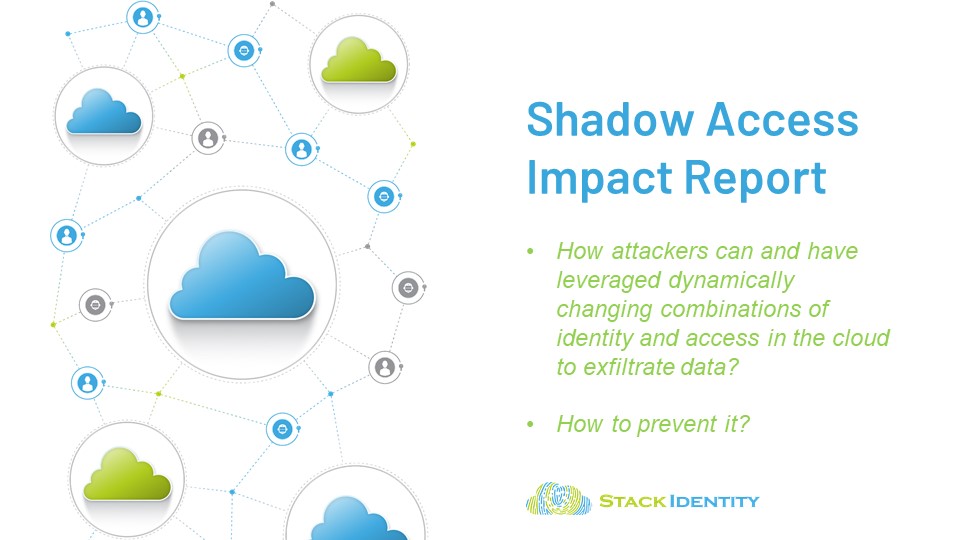Understanding the basics of marketing and branding for startups

Understanding the basics of marketing and branding for startups
Welcome to the exciting world of startups! As an entrepreneur, you've taken a leap of faith and embarked on a journey filled with endless possibilities. But amidst the exhilaration and adrenaline rush, there's one crucial aspect that can make or break your startup - marketing and branding.
Now hold on, I know what you're thinking. Marketing? Branding? Aren't they just fancy buzzwords thrown around by big companies?
Well, my friend, let me tell you this - marketing and branding are not just reserved for the corporate giants. In fact, they are essential ingredients for any startup looking to thrive in today's competitive landscape.
In this blog post, we'll dive deep into the basics of marketing and branding specifically tailored for startups like yours.
So buckle up, grab your notebook (or open your favorite note-taking app), because we're about to unravel the secrets behind successful startup marketing strategies!
Are you ready? Let's get started!
What is marketing and branding?
What exactly is marketing and branding? Let's break it down.
Marketing is the art of promoting and selling your products or services to your target audience. It involves understanding consumer needs, creating compelling messages, and utilizing various channels to reach potential customers.
Think of marketing as the bridge that connects your startup with the people who need what you have to offer.
On the other hand, branding goes beyond just a logo or catchy tagline. It encompasses everything that represents your startup's identity - from your visual elements like colors and typography to your brand values and customer experience. Branding sets you apart from competitors by establishing an emotional connection with your audience.
When combined effectively, marketing and branding work hand in hand to create a powerful impact on how people perceive and interact with your startup. Marketing drives awareness and generates leads, while branding builds trust, loyalty, and recognition.
For startups like yours, mastering these two disciplines can be a game-changer. They lay the foundation for long-term success by helping you establish a strong presence in the market, attract customers, differentiate yourself from competitors, and ultimately drive growth.
Now that we've got a grasp on what marketing and branding are all about let's explore why they are so crucial for startups like yours!
The importance of marketing and branding for startups
Marketing and branding play a crucial role in the success of startups. In today's highly competitive business landscape, it is no longer enough to have a great product or service. Startups need effective marketing and branding strategies to stand out from the crowd and attract customers.
Marketing helps startups create awareness about their offerings. It allows them to reach their target audience and communicate the value they provide.
By understanding customer needs and preferences, startups can tailor their messages to resonate with potential customers.
Moreover, branding helps establish a unique identity for startups. It encompasses everything from the logo design to the tone of voice used in communication. A strong brand creates trust, loyalty, and recognition among consumers.
Furthermore, marketing and branding build credibility for startups. When done right, they showcase expertise and professionalism which instills confidence in customers that they are making the right choice by choosing a startup over established competitors.
Additionally, effective marketing campaigns generate leads, drive sales conversions, and ultimately contribute to revenue growth for startups.
By utilizing various channels such as social media advertising or content marketing strategies like blogging or email newsletters - startups can engage with their target audience at different touchpoints along their customer journey.
Lastly but not leastly both marketing and branding foster long-term relationships with customers by creating positive experiences that keep them coming back for more products or services offered by the startup.
In conclusion, marketing and branding are vital components of any successful startup venture. Integrating these two aspects into your overall business strategy will help you differentiate yourself from competitors, build trust with your target audience, drive sales conversions, and ultimately pave the way for sustainable growth.
Whether through digital channels like social media or traditional methods like print ads, investing time, effort, and resources into crafting an effective marketing and branding strategy is essential for the success of any startup.
The different types of marketing and branding
There are various types of marketing and branding strategies that startups can employ to promote their products or services.
One common type is digital marketing, which utilizes online platforms such as social media, websites, and search engines to reach a wider audience.
This form of marketing allows businesses to target specific demographics and track the effectiveness of their campaigns through analytics.
Another type of marketing is content marketing, which involves creating valuable and informative content to attract and engage potential customers.
This can be done through blog posts, videos, podcasts, or infographics that provide relevant information related to the startup's industry or niche.
Influencer marketing has also gained popularity in recent years. It involves partnering with influential individuals on social media who have a large following in order to promote the startup's products or services.
By leveraging the influencer's credibility and reach, startups can effectively increase brand awareness among their target audience.
Traditional forms of marketing such as print advertisements, television commercials, and radio spots still hold value for certain industries or demographics. These channels allow startups to reach a wider audience beyond just online platforms.
It is important for startups to carefully consider which types of marketing strategies align with their goals and target audience.
A combination of different approaches may be necessary in order to maximize exposure and create a strong brand presence in the market.
The basics of creating a marketing and branding strategy for a startup
Creating a marketing and branding strategy for a startup is crucial to establish a strong presence in the market.
It involves careful planning and execution to effectively communicate your brand message and attract potential customers. Here are some basics to consider when developing your strategy.
It is important to define your target audience. Understand who they are, what their needs and preferences are, and how your product or service can fulfill those needs. This will enable you to tailor your messaging and communication channels accordingly.
Next, identify your unique selling proposition (USP). What sets your startup apart from competitors? Highlighting this USP will help differentiate your brand in a crowded marketplace.
Once you have defined these key elements, develop a cohesive brand identity that reflects your values, mission, and vision.
This includes designing an impactful logo, selecting appropriate colors and fonts that resonate with the target audience.
In terms of marketing tactics, consider both online and offline strategies. Online platforms such as social media marketing, content creation (blogs/articles), search engine optimization (SEO), email newsletters can help reach a wider audience at a lower cost.
Offline strategies like events sponsorship or partnerships with other businesses can also be effective in building brand awareness.
Regularly analyze the effectiveness of different marketing channels using metrics like website traffic or conversion rates. This will enable you to refine your strategy over time based on data-driven insights.
Remember that consistency is key throughout all aspects of branding – from visual elements to tone of voice – ensure it aligns with the overall message you want to convey.
By following these basic steps when creating a marketing and branding strategy for startups,you'll be able to build recognition among potential customers while establishing credibility within the industry.
The different channels of marketing and branding
The different channels of marketing and branding offer startups various avenues to reach their target audience and build brand awareness. In today's digital age, online channels play a crucial role in connecting with potential customers.
One important channel is social media marketing, where startups can leverage platforms like Facebook, Instagram, Twitter, and LinkedIn to engage with their audience through content creation and user interaction.
By creating compelling posts, sharing valuable insights, and responding to customer queries or feedback promptly, startups can establish a strong online presence.
Another effective channel is search engine optimization (SEO), which focuses on improving a startup's website visibility on search engine result pages.
By optimizing keywords relevant to their industry or niche within the website content and structure, startups can attract organic traffic from search engines like Google.
Email marketing remains a powerful channel for nurturing leads and engaging with existing customers.
Startups can create personalized email campaigns that offer exclusive discounts or provide valuable information related to their products or services.
In addition to these digital channels, traditional forms of marketing such as print advertising in newspapers or magazines still hold value depending on the target audience demographics.
Offline events like trade shows or conferences also provide opportunities for face-to-face interactions with potential customers.
It's important for startups to choose the right mix of channels based on their target market characteristics and budget constraints.
A well-rounded approach that combines both online and offline strategies will help maximize reach while ensuring cost-effectiveness.
Understanding the different channels available for marketing and branding allows startups to tailor their efforts according to their specific goals and resources.
By selecting the most appropriate mix of channels based on target audience preferences and behavior patterns, startups can effectively promote their brand message across multiple touchpoints.
The advantages and disadvantages of marketing and branding for startups
Advantages and disadvantages of marketing and branding for startups can greatly impact their success in the market. Let's take a look at both sides of the coin.
On one hand, effective marketing and branding can significantly boost brand awareness and visibility for startups.
By creating a strong brand identity, they can differentiate themselves from competitors and attract more customers.
A well-executed marketing strategy allows startups to reach their target audience through various channels such as social media, content marketing, and search engine optimization (SEO). This increased exposure can lead to higher sales and revenue generation.
However, there are also some downsides to consider. Marketing efforts require financial investment, especially when it comes to advertising campaigns or hiring professionals for branding purposes.
Startups with limited budgets may find it challenging to allocate resources towards these activities while ensuring other essential aspects of their business are adequately funded.
Moreover, if not executed carefully, marketing initiatives may fail to resonate with the target audience or even damage the brand's reputation.
In today's digital age where information spreads quickly on social media platforms, negative feedback or poor customer experiences can have severe consequences for startups.
In conclusion (as per your request), while there are clear advantages that come with effective marketing and branding strategies for startups – including increased visibility and differentiation – entrepreneurs must be cautious about the potential drawbacks such as financial constraints or negative impacts on reputation management.
It is crucial for startup founders to assess their resources carefully before embarking on any marketing or branding endeavors and continuously monitor the outcomes to make necessary adjustments along the way.
Conclusion
Marketing and branding are crucial elements for the success of any startup. They play a vital role in creating awareness about your brand, attracting customers, and building a strong reputation in the market.
By understanding the basics of marketing and branding, startups can develop effective strategies to differentiate themselves from competitors and establish a solid presence.
It is important to remember that marketing and branding go hand in hand. While marketing focuses on promoting products or services through various channels, branding involves creating an identity and perception for your business. Both aspects are essential for startups to connect with their target audience and build trust.
When developing a marketing and branding strategy, startups should consider their unique selling proposition (USP) – what sets them apart from competitors – as well as their target market's needs and preferences.
This will help guide decisions on messaging, visuals, communication channels, and tactics used to reach potential customers.
There are various channels available for startups to implement their marketing and branding efforts. These include social media platforms like Facebook, Instagram, LinkedIn; search engine optimization (SEO); content creation such as blog posts or videos; email marketing campaigns; influencer collaborations; events participation; public relations activities; among others. It is important to choose the right mix of channels based on your target audience's behavior.
While there are numerous advantages associated with marketing efforts – increased brand visibility, customer acquisition opportunities – it is also important to be aware of potential disadvantages such as high costs or competition saturation in certain markets.
Ultimately every startup should strive towards developing a comprehensive approach integrating both marketing activities aimed at immediate results such as lead generation or sales conversion along with long-term brand building initiatives focused on establishing credibility within its niche market segment.











.jpg)




































